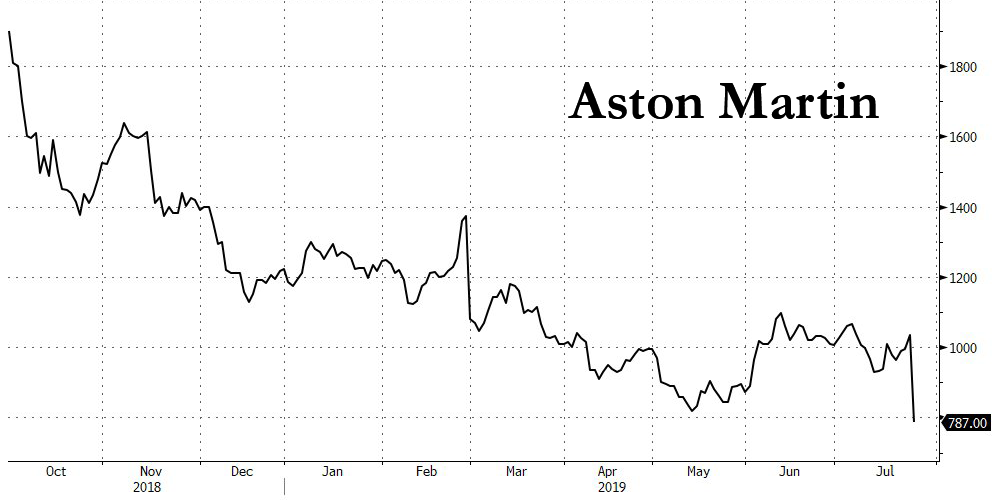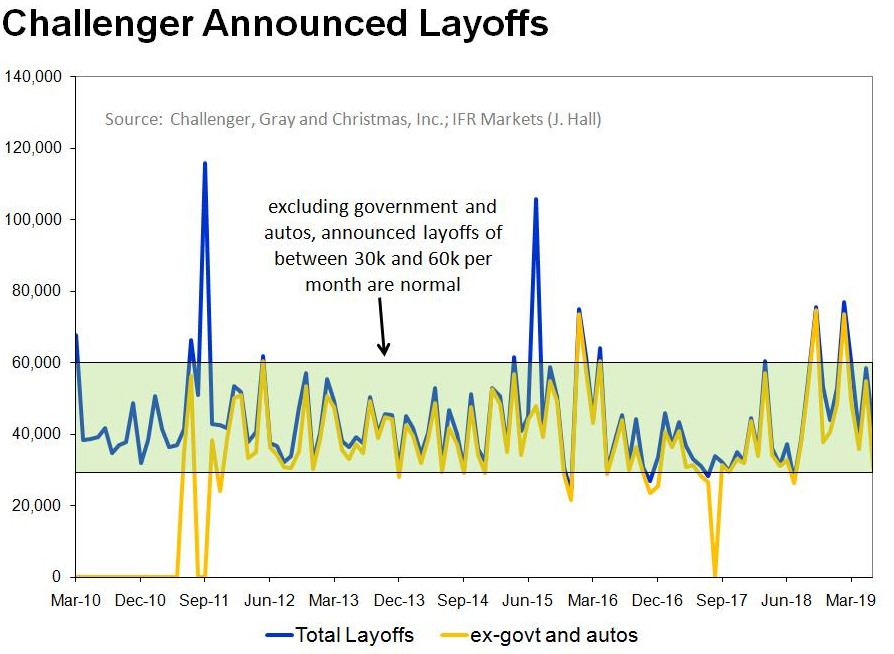Aston Martin is the latest automaker confirming what we have been pointing out for 18 months – that the global automobile market has entered a significant recession.
Shares of the automaker plunged after it forecast wholesale units of 6,300 to 6,500, down from 7,100 to 7,300 units that the company guided for in February, before confirming this guidance as recently as May.
Shares are now about 58% lower than their October IPO price.
The company said that it is taking actions to improve efficiency and reduce its fixed costs, but the outlook going forward for the company didn’t sound optimistic. The company said on Tuesday:
“[The] challenging external environment highlighted in May has worsened, as have macro-economic uncertainties.”
The company continued:
“We anticipate that this softness will continue for the remainder of the year and are planning prudently for 2020.”
And this news comes just one day after we reported that Nissan was slashing about 7% of its total workforce by cutting 10,000 jobs.
We’ve already seen massive planned layoffs from US auto makers like Ford, and Nissan was the latest to join the mass layoffs bandwagon, with Kyodo reporting yesterday that Nissan will cut over 10,000 jobs globally, or over 7% of its entire global workforce.
In some respects, it was deja vu of The Great Recession for Nissan. In 2009, the company slashed 20,000 jobs before forecasting a $2.6 billion loss. This represented about 8% of the company’s 235,000+ employee count at the time.
Yesterday’s announced cuts were no doubt in response to the deteriorating automotive market in China: recall in early July we reported that Nissan’s sales in China from January to June totaled 718,268 units, a 0.3% y/y decline.
In May, we reported that countries like China, the United Kingdom, Germany, Canada and the United States had all seen at least 38,000 job cuts over the last six months in the automotive sector. Daimler CEO Dieter Zetsche said in May that “sweeping cost reductions” are ahead to prepare for what he is calling “unprecedented” industry disruption.
Based on Aston Martin’s commentary and Nissan’s layoffs, it looks as though he was right.
A few weeks ago we also reported that over 25% of all June job cuts came from the automotive sector, according to Managing Economist for Refinitiv Jeoff Hall. Hall commented on Twitter that the industry’s 10,904 redundancies were the most in seven months and the second most in seven years. Hall also noted that excluding autos, there were only 31,073 job cuts in June, the fewest in 11 months, in low-normal range.
via ZeroHedge News https://ift.tt/30S2BQo Tyler Durden


